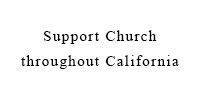October 6, 2025
Written by Sarah Holstra, Pastoral Counselor of Love Your Story Christian Counseling

When you're seeking support for life's challenges, understanding the different types of counseling available can help you make the best choice for your needs. Two common approaches—pastoral counseling and clinical counseling—offer distinct but complementary pathways to healing and growth. While both involve deep listening and caring support, they differ in significant ways that matter for your journey.
What Is Pastoral Counseling?
Pastoral counseling integrates faith and spirituality into the counseling process. Pastoral counselors are not licensed clinicians. They have differing training and education that qualifies them for this role, and will happily provide that for you upon request. However, our belief is that pastoral counseling is a part of the net of care that we all need, and information or conversations within the pastoral counseling context is not intended or implied to be a substitute for professional medical advice, diagnosis or treatment.
Pastoral counseling is still utilizing listening skills, connecting to people below the surface, and helping people understand what's actually going on in their lives, relationships, and connection to God. These counselors create a space where questions of meaning, purpose, and faith can be explored openly alongside the practical challenges you're facing.
The Role of Faith in Pastoral Counseling
One of the defining characteristics of pastoral counseling is the explicit integration of faith language and spiritual practices. If you're wrestling with questions about your relationship with God, struggling with doubt, or seeking to understand how your faith intersects with your mental health, a pastoral counselor can speak directly into these areas. They may incorporate prayer, Scripture, spiritual practices, or theological reflection as natural parts of the conversation—whatever feels most meaningful to you.
This doesn't mean pastoral counseling is only about spiritual matters. Many people seek pastoral counseling for relationship struggles, grief, anxiety, life transitions, or parenting challenges—and they appreciate having a counselor who can acknowledge the spiritual dimension of these experiences without compartmentalizing their faith. It's about bringing your whole self into the room.
What Is Clinical Counseling?
Clinical counselors are licensed mental health professionals who have completed graduate-level education in counseling, psychology, social work, or a related field. They've undergone extensive training in psychological assessment, diagnosis, and evidence-based treatment approaches. Clinical counselors (including Licensed Professional Counselors, Licensed Clinical Social Workers, and Marriage and Family Therapists) must meet state licensing requirements and maintain their credentials through continuing education.
The Clinical Approach
Clinical counselors maintain more personal distance, refrain from utilizing specific faith language, and practice within the scope of clinical care. They work within established treatment frameworks, often using approaches like Cognitive Behavioral Therapy (CBT), Dialectical Behavior Therapy (DBT), Eye Movement Desensitization and Reprocessing (EMDR), or other evidence-based modalities.
This doesn't mean clinical counselors ignore your values or beliefs—they simply take a different approach. A clinical counselor might explore how your beliefs influence your well-being without necessarily sharing those beliefs or using religious terminology. They're trained to work with clients from diverse backgrounds and belief systems, meeting you exactly where you are.
Key Differences Between Pastoral and Clinical Counseling
Training and Credentials
The educational paths for these two types of counselors diverge significantly. Clinical counselors typically hold master's degrees in counseling or related fields and have completed thousands of hours of supervised clinical experience. They must pass state licensing exams and adhere to strict ethical codes enforced by licensing boards.
Pastoral counselors often have theological training, sometimes including seminary degrees, and may have additional coursework in counseling. Some pursue certifications through organizations like the American Association of Pastoral Counselors. Their preparation emphasizes the integration of theology and counseling rather than clinical licensure—bringing together the wisdom of faith traditions with the art of caring presence.
Scope of Practice
Clinical counselors are equipped to diagnose and treat mental health conditions according to the DSM-5 (Diagnostic and Statistical Manual of Mental Disorders). They can work with more severe mental health issues, create formal treatment plans, and coordinate care with psychiatrists and other medical professionals.
Pastoral counselors do not prescribe medication, and they are very familiar with clinical counselors in the area to whom they can refer out if someone is experiencing issues beyond their understanding. They focus on spiritual care, life guidance, and support that integrates faith perspectives. When someone presents with symptoms that suggest a mental health disorder requiring clinical intervention, a responsible pastoral counselor will make appropriate referrals—because they genuinely care about you getting the right help.
Use of Faith Language and Practices
Perhaps the most noticeable difference in sessions is the approach to faith. Pastoral counselors freely use religious language, draw from sacred texts, and may incorporate spiritual practices like prayer or meditation into sessions. They view spiritual health as inseparable from overall well-being—because for many of us, that's simply true.
Clinical counselors, even those who are people of faith themselves, typically maintain a more neutral stance on religious matters. They respect your beliefs and may explore how they impact your life, but they won't typically lead prayer, quote Scripture as guidance, or position faith as the primary lens for understanding your struggles. Instead, they provide a space where faith can be present without being prescriptive.
The Therapeutic Relationship
Both pastoral and clinical counselors build caring relationships with clients, but the nature of these relationships differs. Clinical counselors maintain clearer boundaries and professional distance—this isn't coldness, but rather an evidence-based practice that protects the therapeutic space and prevents dependency or other complications. It's a different kind of care, but it's still deeply compassionate.
Pastoral counselors may operate within the context of a faith community, potentially seeing counselees in other settings like worship services or church events. The relationship may feel more personal and less formally structured, though ethical pastoral counselors still maintain appropriate boundaries. There's often a sense of walking alongside someone in community.
When to Choose Pastoral Counseling
Pastoral counseling may be the right fit if:
You want faith to be central to your healing process and don't want to leave it at the door. You're navigating questions about your relationship with God and need someone who can speak that language with you. You appreciate having spiritual practices incorporated into counseling—maybe prayer brings you comfort, or Scripture has always been a source of wisdom. You're dealing with life challenges that feel deeply connected to your faith journey, and separating them feels artificial. You want guidance that explicitly draws from your religious tradition because that's what grounds you. You're experiencing a crisis of faith or spiritual doubt and need a safe place to wrestle with hard questions.
When to Choose Clinical Counseling
Clinical counseling may be more appropriate if:
You're experiencing symptoms of a mental health disorder (such as severe depression, anxiety, PTSD, or bipolar disorder) that needs clinical attention. You need a formal diagnosis for treatment or disability purposes. You're seeking evidence-based treatment for a specific condition—sometimes we need the tools that research has shown really work. You prefer to keep faith separate from your therapy process, and that's completely valid. You need coordination with a psychiatrist for medication management. You're working through trauma that requires specialized clinical interventions designed specifically for healing deep wounds.
Questions to Ask When Choosing
Whether you're considering pastoral or clinical counseling, don't hesitate to ask questions. A good counselor will welcome your curiosity:
For Pastoral Counselors: What is your training and education background? How do you integrate faith into your counseling approach? What are the limits of your practice, and when would you refer to a clinical counselor?
For Clinical Counselors: What are your credentials and areas of specialization? What therapeutic approaches do you use? How do you handle clients' spiritual or religious concerns?
Finding the Right Fit
Ultimately, the "best" type of counseling is the one that meets your needs where you are. Both pastoral and clinical counselors care deeply about your well-being and want to support you in your journey toward healing and wholeness.
If you're unsure which approach is right for you, consider starting with a consultation. Many counselors offer free initial conversations where you can share what you're experiencing and get their professional perspective on what might serve you best. Trust your instincts—the right counselor will feel like someone you can trust with your story, someone who truly sees you.
Remember that seeking help, whether pastoral or clinical, is a sign of strength and wisdom. You don't have to navigate life's challenges alone, and you deserve support that honors all parts of who you are—mind, body, and spirit. There's no shame in reaching out. In fact, it takes courage to say, "I need help," and that courage is something to be celebrated.
Want to learn more about how pastoral counseling might support you in your journey? I'd love to hear your story and explore whether this approach is the right fit for your needs. Email me at sarahholstra@loveyourstorytherapy.com to set up a free consultation today. Let's discover together what healing and wholeness can look like for you.





